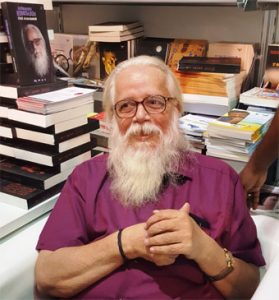 New Delhi: The Supreme Court on Thursday ordered a CBI probe into the role of Kerala police officers in framing ISRO scientist Nambi Narayanan in the 1994 ISRO espionage case.
New Delhi: The Supreme Court on Thursday ordered a CBI probe into the role of Kerala police officers in framing ISRO scientist Nambi Narayanan in the 1994 ISRO espionage case.
A bench headed by Justice A.M. Khanwilkar accepted the report of a panel headed by former top court judge D.K. Jain, and asked the CBI to carry out further investigation. The top court said the matter is very serious and it requires a CBI probe.
The bench asked acting CBI Director to take charge of the case and treat the report by Justice Jain panel as a preliminary inquiry report to conduct further investigations into the matter.
The bench also comprising Justices Dinesh Maheshwari and Krishna Murari also asked the CBI to file status report on its investigations in three months. The top court has ordered that panel’s report should be kept confidential in a sealed cover.
The 79-year-old Narayanan waged a legal battle against the Kerala police officers who accused him of being a Pakistan’s spy in 1994. Besides appointing the panel, the top court had directed the Kerala government to pay Rs 50 lakh compensation to Narayanan for causing him immense humiliation.
In 2018, a bench of the then Chief Justice Dipak Misra decided to appoint a committee under Jain and asked the Centre and the Kerala government to name one person each to the committee. While the Centre appointed a top official — D.K. Prasad, the Pinarayi Vijayan government appointed former Additional Chief Secretary V.S. Senthil.
The ISRO spy case surfaced in 1994 when Narayanan was arrested on charges of espionage along with another senior official of ISRO, two Maldivian women and a businessman.
The CBI had held that the then top police officials in Kerala were responsible for Narayanan’s illegal arrest. The panel examined the circumstances leading to Narayanan’s arrest. It was alleged that confidential documents on India’s space program was allegedly transferred to foreign countries.
Narayanan had maintained that Kerala police fabricated the case and the technology he was accused to have stolen and sold in 1994 case did not even exist at that time.
